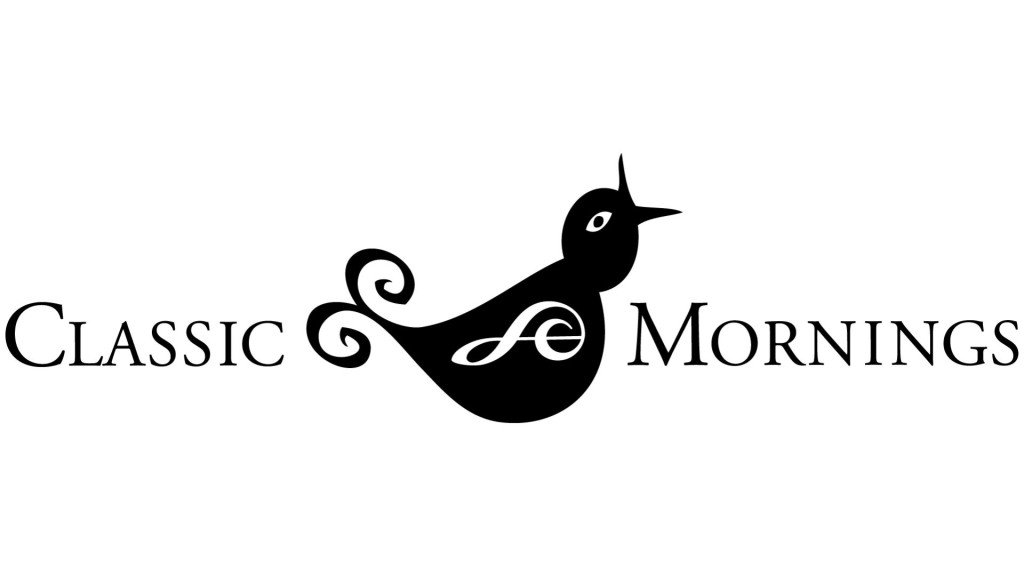Sir Neville & Buh-Duh Buh-DAH

They were born one day apart 100 years ago. They were born on opposite sides of the Atlantic. And though they followed different musical paths, both of those led to international fame in the 20th century.
There’s hardly a day on WILL-FM without a performance featuring the Academy of St. Martin in the Fields. On April 15, we celebrated the centennial of its founder: Sir Neville Marriner. Marriner was, and continues to be, a household name among classical music listeners. The English violinist and conductor died in 2016.
It’s been said that Marriner made some 600 recordings. I can’t be more specific than to say we have many. Over the years, I have found myself playing more and more selections from his recordings on Classic Mornings. That includes not only Sir Neville and “The Academy,” but also the Philharmonia Orchestra and the Stuttgart Radio Symphony Orchestra.
One of the highlights of Marriner’s years with “The Academy” was the Amadeus soundtrack. This fall will mark the 40th anniversary of the film’s release.
Movie theatres and TV rooms served as the main venues for Henry Mancini’s music. He was a film and television composer. Yet his film and television soundtrack albums achieved a popularity of their own. Some of the songs he wrote for films became American standards, and instrumental pieces from the soundtracks were heard regularly on pop radio programs in the 1960s.
Mancini conducted his compositions and arrangements in pops concerts around the world. And he collaborated with musical celebrities, including flutist James Galway and tenor Luciano Pavarotti
Occasionally, I play a Mancini selection on Classic Mornings. His 100th birthday anniversary brought back memories of so many of his songs and soundtracks. Though I hadn’t heard them in decades, they’ve been playing over and over in my head, ever since I mentioned his centennial on April 16. And I was reminded of my interview with him back in the spring of 1986.
I had come to know a bit of his music from movies, television, and radio. I attended a couple of his pops concerts as well. Accompanied by the memory of all those tunes and sitting right across from him, I wasn’t sure where to begin when I had the chance to chat with him.
He was quite calm the entire time. And though I anticipated getting him to tell stories about the inspiration for some of his famous tunes, that never happened. He basically talked about being a film composer and delivering what the directors of those films asked for. He spoke about it with a sense of duty and with no pretension. He was on hand while the films were being made and was responsible for providing as many seconds or minutes of music as were required.
I know I was a bit disappointed back then. He did compare it to classical music composers who had been commissioned to write works throughout music history. And the more I thought about it, the film directors, like the patrons of the great composers, never restrained him from using his creativity and gifts in providing that music. Though originally written for the purpose of accompanying or enhancing screenplays, his music found its way into radio playlists and concert halls!
At the time of the interview, his 1984 recording of popular Italian songs with Luciano Pavarotti was still fresh in my memory. It was named for the opening song: Mamma. Mancini arranged and orchestrated all of the songs. Included was one titled: In un paclo della Scala (A Box at La Scala). It was a reminiscence of the opera house in Milan near the turn of the 20th century. I remember finding it amusing that the song opened with the famous four bass notes of Mancini’s “Pink Panther” theme. Since his name was included in the song’s credits, I asked him about it. He said he had no part in writing it, nor did he ever meet the songwriters. “Luciano” had requested that somewhere on the album, Mancini might include the well-known: “buh-duh buh-DAH” – that’s how he said it. Mancini worked it into the song. And he added his name to those of the songwriters, since he wasn’t going to just give away his famous tune, he said.
I hope I often include selections that you look forward to hearing on Classic Mornings. Though your individual tastes are unique, I do my best to make all of you want to stay tuned, as well as come back each morning.
We’re about to begin our Spring Fund Drive. The classical music you enjoy on WILL-FM is made possible by the support of listeners. If you haven’t had the chance to be a part of that support, please call 217-244-9455, or go online to willgive.org and make a contribution. Thank you very much!

